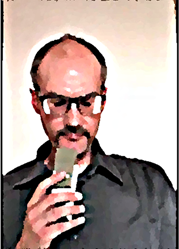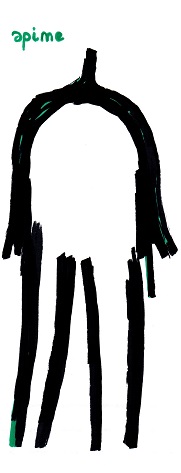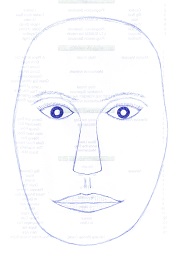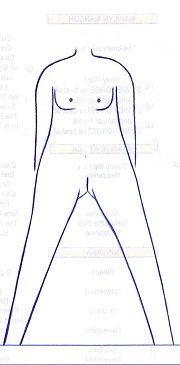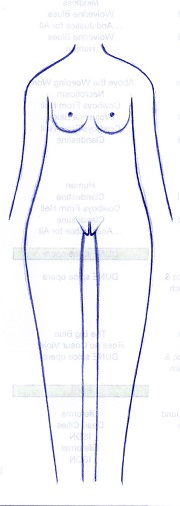|
I totally agree that there is a law that says that things are forbidden, and that when a person does one of these things that are forbidden, afterwards we say: he did it. And indeed, he did it, and not only did he do it, and what he did is forbidden, but he did it at a particular moment in time. If they ask you: what time is it, you're gonna watch your smartphone or your laptop or your watch or whatever, but you're not going to open your book with the laws, because your book with the laws doesn't tell time, you know. Say someone murdered somebody, hypothetically speaking, I totally agree that there are laws that say that it's forbidden. Say somebody, at a particular moment in time, murders someone, hypothetically speaking, then afterwards people will say: he did it, and the thing that he did is forbidden, and he must receive his sentence, and it cannot be forgiven, because the thing that he did is a thing that can never be forgiven. And I totally agree that if I, hypothetically speaking, would kill someone, I would receive my sentence, and what I did can never be forgiven, at one condition. Imagine I'm in court right now and I would tell the judge that I totally agree with all of this, but I have just one question. I'd ask the judge to take his book with the laws. And I would wait until the judge is holding his book with the laws, and then I would ask the judge this simple question: What time is it? And then the judge would probably look at an electronic device and answer me. And then I would say: No, don't watch your electronic device, but open your book with the laws and see if it tells you what time it is. But I know that the book that the judge is holding doesn't tell him what time it is, because a book just can't tell the time. That's fine, but I agree to receive my sentence, because I did it, but what I did I did at a particular moment in time, and I want to ask the judge to add to my sentence that I did it at a particular moment in time. Because I did it, but it happened in the past, and you are sentencing me for something that happened in the past, and a lot of things happened in the past, a lot of things that are forbidden happened in the past, and a lot of things that are morally wrong happened in the past, and all of those things happened at a particular moment in time, but the people that have done those things, things that are forbidden, have never been sentenced for what they've done, and as a matter of fact all the things they did they did at a particular moment in time, and they've never received the sentence they should have received, and not only that but also we don't know at what moment, at what particular moment in the past they did it. Why is that? Because if the book with the laws could tell the time, then the book with the laws could also tell us at what time, at what particular moment in the time these people that have never been sentenced did what they've done. But the book of laws doesn't know what they've done, because the book of laws can't tell the time, and thus the book doesn't know when it happened, nor what they've done. So, they might as well have done nothing forbidden, as far as we know. So in conclusion I agree to receive my sentence, and to never be forgiven, because I did it, hypothetically speaking, but at one condition: that the judge writes in his book of laws the following sentence. It's not a request, it's a condition, because I'm not playing.
"THE OFFENDER STATES THAT HE AGREES ON RECEIVING HIS SENTENCE AND NEVER BE FORGIVEN FOR WHAT HE DID, BECAUSE HE DID IT, HYPOTHETICALLY SPEAKING, THE THING THAT IS FORBIDDEN, AND HE DID IT AT A PARTICULAR MOMENT IN TIME, AT ONE CONDITION, THAT HIS SENTENCE SHALL BE KEPT IN THE BOOK WITH THE LAWS, AND TO HIS SENTENCE SHALL BE ADDED THAT IT HAPPENED AT A PARTICULAR MOMENT IN THE TIME, AND THAT WHAT HE DID IS FORBIDDEN, AND HE DID IT IN THE PAST, AND WE DON'T KNOW AT WHAT PARTICULAR MOMENT IN THE PAST IT HAPPENED, BECAUSE THIS BOOK WITH THE LAWS CAN'T TELL THE TIME, AND THERE ARE SO MUCH THINGS THAT ARE FORBIDDEN THAT HAPPENED AT PARTICULAR MOMENTS IN THE PAST, AND ALMOST NONE OF THESE OFFENDERS RECEIVED THEIR SENTENCE, BECAUSE THIS BOOK DOESN'T KNOW WHEN THESE THINGS HAPPENED, AND WE'VE FORGOTTEN ABOUT ALL OF THOSE THINGS, AND NONE OF THE LAWS THAT ARE WRITTEN IN THIS BOOK DON'T CHANGE A THING ABOUT THAT."
I hereby formally ask the judge to add this statement to his book with the laws.
|


